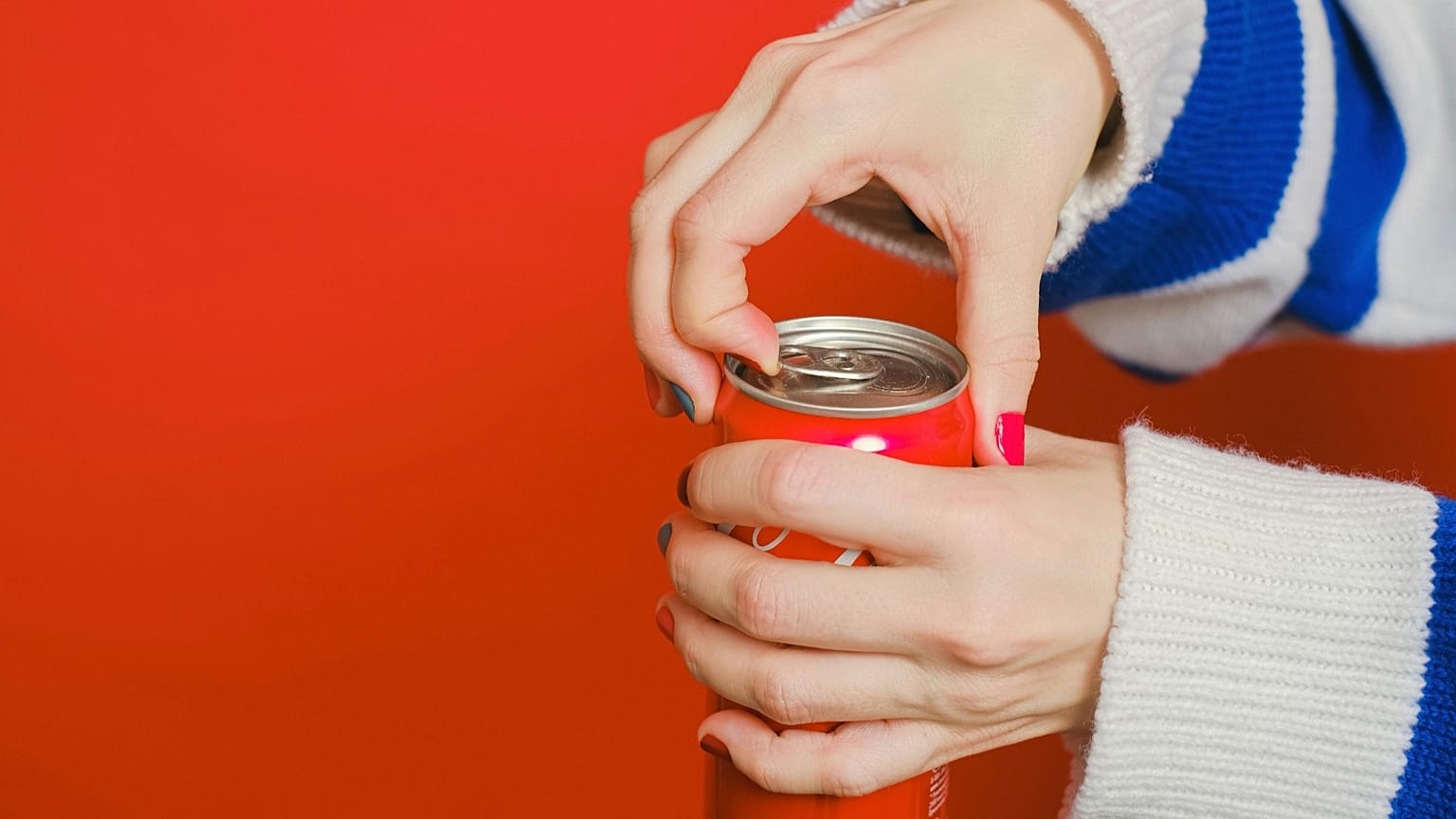Health
Study Links Daily Sugary and Diet Drinks to Liver Disease Risk

A recent study has raised concerns about the health implications of consuming even one sugary or diet drink each day. According to research presented at the United European Gastroenterology Week in Berlin, a single daily can of either sugar-sweetened beverages (SSBs) or low/no-sugar drinks (LNSSBs) significantly increases the risk of developing metabolic dysfunction-associated steatotic liver disease (MASLD).
The study tracked the health of 123,788 participants from the UK over a decade, all of whom initially had no liver disease. Participants reported their beverage consumption through repeated 24-hour dietary questionnaires. Over the study period, 1,178 individuals developed MASLD, and 108 died from liver-related causes. The findings revealed that SSBs raised the risk of MASLD by 50 percent, while LNSSBs increased the risk by 60 percent. Additionally, artificially sweetened drinks were linked to a higher likelihood of liver-related mortality.
Understanding MASLD and Its Risks
MASLD, previously known as non-alcoholic fatty liver disease, is characterized by the accumulation of fat in the liver, which can lead to inflammation, pain, fatigue, and appetite loss. Furthermore, it is increasingly recognized as a significant contributor to cardiovascular diseases, type 2 diabetes, and kidney issues. A 2025 meta-analysis of 92 studies estimated that 38 percent of the global population suffers from MASLD, reflecting a 50 percent increase over the past two decades.
Lead author of the study, Lihe Liu, emphasized the need for a reevaluation of these commonly consumed beverages. “SSBs have long been under scrutiny, while their ‘diet’ alternatives are often seen as the healthier choice,” Liu stated. “Our study shows that LNSSBs were actually linked to a higher risk of MASLD, even at modest intake levels such as a single can per day. These findings challenge the common perception that these drinks are harmless and highlight the need to reconsider their role in diet and liver health, especially as MASLD emerges as a global health concern.”
Biological Impacts of Sugary and Diet Drinks
The research team provided insights into how these beverages may affect liver health on a biological level. Liu explained that “the higher sugar content in SSBs can cause rapid spikes in blood glucose and insulin, promote weight gain, and increase uric acid levels, all of which contribute to liver fat accumulation.” In contrast, LNSSBs may negatively impact liver health by altering the gut microbiome, disrupting satiety signals, driving cravings for sweetness, and even stimulating insulin secretion.
To mitigate the risk of liver disease, the study suggests practical strategies such as replacing sugary and diet drinks with water, maintaining a healthy weight, engaging in regular exercise, and following a balanced diet. Liu concluded, “Water remains the best choice as it removes the metabolic burden and prevents fat accumulation in the liver, whilst hydrating the body.”
The study’s findings underscore the importance of making informed dietary choices and recognizing the potential health risks associated with widely consumed beverages. As MASLD continues to pose a growing health issue globally, increased awareness and lifestyle adjustments may be crucial in combating this condition.
-

 Top Stories3 months ago
Top Stories3 months agoTributes Surge for 9-Year-Old Leon Briody After Cancer Battle
-

 Entertainment4 months ago
Entertainment4 months agoAimee Osbourne Joins Family for Emotional Tribute to Ozzy
-

 Politics4 months ago
Politics4 months agoDanny Healy-Rae Considers Complaint After Altercation with Garda
-

 Top Stories4 months ago
Top Stories4 months agoIreland Enjoys Summer Heat as Hurricane Erin Approaches Atlantic
-

 World5 months ago
World5 months agoHawaii Commemorates 80 Years Since Hiroshima Bombing with Ceremony
-

 Top Stories3 months ago
Top Stories3 months agoNewcastle West Woman Patricia Foley Found Safe After Urgent Search
-

 Top Stories5 months ago
Top Stories5 months agoFianna Fáil TDs Urgently Consider Maire Geoghegan-Quinn for Presidency
-

 World5 months ago
World5 months agoCouple Convicted of Murdering Two-Year-Old Grandson in Wales
-

 World5 months ago
World5 months agoGaza Aid Distribution Tragedy: 20 Killed Amid Ongoing Violence
-

 World5 months ago
World5 months agoAristocrat Constance Marten and Partner Convicted of Infant Murder
-

 Top Stories4 months ago
Top Stories4 months agoClimbing Errigal: A Must-Do Summer Adventure in Donegal
-

 Top Stories4 months ago
Top Stories4 months agoHike Donegal’s Errigal Mountain NOW for Unforgettable Summer Views









